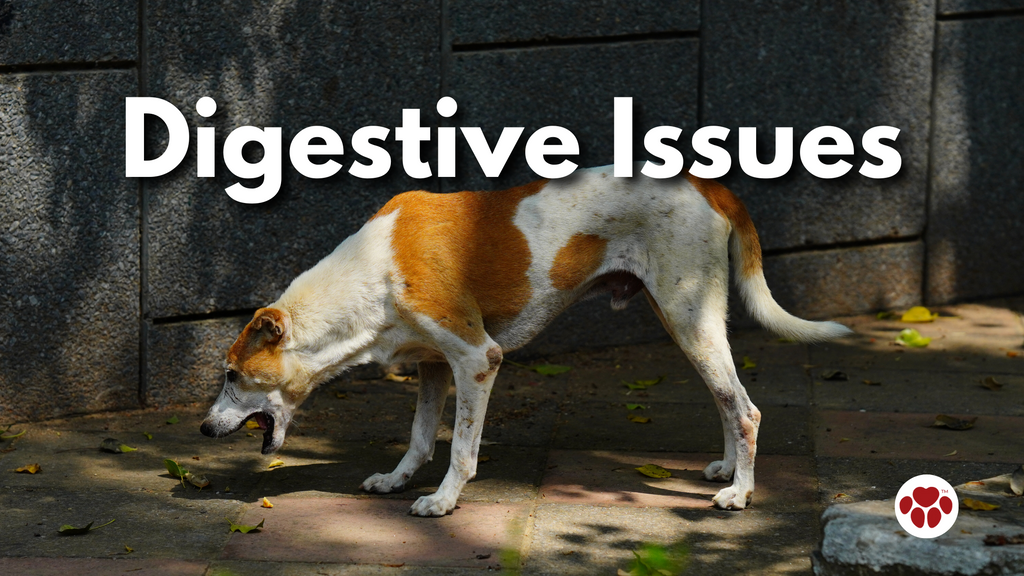
Can a Dog Have Cinnamon?
|
|
Time to read 7 min
|
|
Time to read 7 min
This article will discuss the following:

Cinnamon is a common household spice, but pet owners often wonder whether it is safe for dogs to consume. While sprinkling a small amount of cinnamon on your dog's food may seem harmless, it's important to be aware of the potential risks associated with it (Yun, et al, 2018).
Too much cinnamon can lead to toxicity in dogs, causing symptoms such as vomiting, diarrhea, low blood sugar, or even liver disease. It is crucial to consult with a veterinarian before introducing cinnamon into your dog's diet.
Your vet can provide personalized advice based on your dog's health status and recommend safe dosage levels. Remember, moderation is key when it comes to giving your furry friend any new food or spices.

Cinnamon offers several potential health benefits for dogs when used appropriately.
One of the key advantages of incorporating cinnamon into your dog's diet is its anti-inflammatory properties. This spice can help reduce inflammation (Gruenwald, Freder, and Armbruester, 2010), which is particularly beneficial for dogs with arthritis or joint pain. Read about "Dog's Arthritis Aid: Unveiling CBD Oil's Benefits" and "CBD Oil For Dogs With Joint Pains".
Cinnamon is known to aid in improving digestion by stimulating enzymes that break down food more efficiently. This can lead to better nutrient absorption and overall digestive health for your furry friend.
Cinnamon is known for its anti-inflammatory properties (Rao and Gan, 2014), which can be beneficial for dogs with certain health conditions. Regarding dogs dealing with liver disease, incorporating cinnamon into their diet may help alleviate some symptoms.
The anti-inflammatory effects of cinnamon can assist in reducing inflammation in the liver, thus supporting overall liver function. Cinnamon is rich in antioxidants that can aid in combating oxidative stress (Niazmand, et al, 2021), which is commonly associated with liver issues.
By adding small amounts of cinnamon to a dog's meal, pet owners may contribute to their furry companion's wellbeing and potentially provide some relief in managing liver-related health concerns.
Cinnamon exhibits antioxidant effects (Roussel, Hininger, and Benaraba, 2009) that may help protect dogs from oxidative stress and cell damage. This spice contains potent antioxidants such as polyphenols and flavonoids (Cao and Anderson, 2011), which play a crucial role in reducing inflammation and boosting the immune system in dogs.
The benefits of these antioxidants include combating free radicals, which are harmful molecules that can cause cellular damage, aging, and disease.
Cinnamon can aid in improving digestion for dogs, promoting better nutrient absorption and gastrointestinal health. One of the key benefits of using this spice in your pet's diet is its ability to reduce gas and bloating, which can be common digestive issues in dogs. Check "CBD for your Dog's Upset Stomach".
The cinnamaldehyde content of cinnamon has anti-hyperglycemic and anti-obesity effects by reducing food intake and gastric emptying rates, and improving glucose tolerance without affecting insulin secretion (Camacho, et al, 2015).
Cinnamon has natural anti-inflammatory properties that can soothe the digestive tract and promote overall pet health. It also acts as a natural antibacterial agent, which can support a healthy gut environment for your canine companion.
Cinnamon is believed to help regulate blood sugar levels in dogs, which can be particularly beneficial for those with diabetes. When incorporated into a dog's diet in safe quantities, cinnamon can aid in managing insulin sensitivity and potentially reducing the risk of blood sugar spikes (Khan, et al, 2003).
Consulting a veterinarian to determine the appropriate dosage for your dog is crucial to ensure cinnamon is safely utilized as a supplement for blood sugar regulation.

Determining the appropriate amount of cinnamon for dogs is crucial to ensure their safety and well-being.
Pet health experts recommend being cautious when introducing cinnamon into a dog's diet, as excessive consumption can pose risks to their well-being. In general, dogs of different sizes advised to take the following cinnamon feeding guideline:
It's essential to monitor your pet's health closely and watch for any adverse reactions. Always consult with your veterinarian before adding any new ingredients to your dog's diet to ensure their pet's health and safety. Moreover, any new part of the diet should be introduced gradually to prevent stomach upset.
Small dogs require smaller amounts of cinnamon compared to larger breeds to avoid potential health risks. It's important to keep in mind that even though cinnamon can offer some health benefits, it should be given in moderation to small dogs.
Medium-sized dogs can generally tolerate slightly higher amounts of cinnamon but should still be given in moderation. Veterinarians recommend a cautious approach when giving cinnamon to dogs, as excessive intake may lead to toxicity risks. It's essential to remember that each dog is unique, and factors like age, weight, and overall health can impact how much cinnamon they can safely consume.
A general rule of thumb is to start with a small amount and monitor how your dog responds to it. If in doubt, always consult your vet for personalized advice on the cinnamon dosage that is suitable for your medium-sized dog.
Large dogs may handle larger quantities of cinnamon, but it is essential to avoid excessive consumption to prevent adverse effects. When incorporating cinnamon into your large dog's diet, moderation is key. A safe level is around 1/2 teaspoon of cinnamon per 30 pounds of your dog's body weight.
Excessive amounts of cinnamon can lead to stomach upset, liver damage, or even more severe consequences. If you suspect your dog has ingested too much cinnamon or if they show any symptoms of distress, contacting the Pet Poison Helpline immediately is crucial for prompt and accurate guidance on the next steps to take.
While cinnamon offers potential health benefits, there are inherent risks associated with giving this spice to dogs. According to PetMD, dogs can have serious allergic reactions to cinnamon if consumed in large quantities. Symptoms may include vomiting, diarrhea, low blood sugar, or even liver disease. Cinnamon may cause digestive issues in dogs, leading to discomfort and potential long-term health problems.

Some dogs may experience allergic reactions to cinnamon (Hajimonfarednejad, et al, 2019), leading to symptoms like skin rashes or digestive upset. In more severe cases, breathing difficulties or mouth effects may occur, signaling a potentially dangerous situation. These can include wheezing, coughing, excessive drooling, or even swelling of the face or throat, which could lead to an anaphylactic reaction if left untreated.

Digestive problems such as vomiting or diarrhea can occur in dogs that consume excessive amounts of cinnamon (Hajimonfarednejad, et al, 2019). In severe cases, ingestion of large quantities of cinnamon could potentially lead to more serious health issues, including liver damage.

In some cases, cinnamon toxicity can lead to liver damage, emphasizing the importance of controlled intake (Brancheau, Patel, and Zughaib, 2015). Excessive amounts of cinnamon can overwhelm a dog's liver, as their bodies metabolize certain substances differently compared to humans. The hepatotoxic effect of cinnamon had been linked to its coumarin content (Woehrlin, et al, 2010).

For pet owners seeking alternatives to cinnamon, turmeric, ginger, parsley, and oregano offer flavorful and safe options for dogs.
Turmeric, a vibrant yellow spice known for its anti-inflammatory properties (Maheshwari, et al, 2006), can aid in reducing joint pain and improving digestion in dogs. It can be added in small quantities to homemade dog treats or mixed with a bit of water and drizzled over their food.
Ginger, another versatile spice, is effective in calming upset stomachs and alleviating nausea (Bodagh, Maleki, Hekmatdoost, 2018). Grated fresh ginger can be added to plain cooked rice or included in broth to make a nutritious and soothing meal for your furry friend.

When giving cinnamon to dogs, it is essential to do so in moderation and under the guidance of a veterinarian to prevent any adverse effects. Cinnamon can be incorporated into your dog's diet through homemade treats, but it's crucial to remember that only small amounts should be used.
Monitor your dog for any signs of gastrointestinal upset or allergic reactions after consuming cinnamon treats.

Yes, dogs can have cinnamon in small amounts.
Cinnamon is generally safe for dogs to consume in small amounts, but it is important to consult with your veterinarian before giving it to your dog.
Cinnamon has anti-inflammatory properties and can aid in regulating blood sugar levels for dogs with diabetes.
The recommended amount of cinnamon for dogs is 1/8 teaspoon per 10 pounds of body weight.
Yes, if given in large amounts, cinnamon can be harmful to dogs. It can cause stomach upset, irritation, and in severe cases, liver damage.
Yes, there are other spices that dogs can safely consume in small amounts, such as turmeric, ginger, parsley, and thyme.